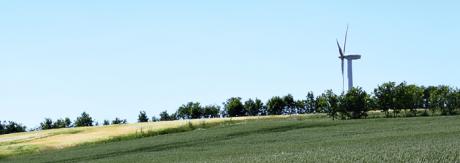
Biofuels hardly competed with food production, so far
Yes, farmers grew much more biofuel crops. But this was more than compensated for by multiple cropping mainly in tropical areas, and by reuse of fallow land. Farmers did not so much open new land, but used it more effectively.
Multiple cropping
This month, the environmental committee of the European Parliament (EP) capped biofuel production from food crops to a maximum of 5.5% because of its effect on food security. Discussions on land use change (ILUC) as a result of biofuel production have had a major influence on policy making in the past few years.
According to some studies, biofuels would endanger world food production. The catchword was competition: farmers could not serve two markets. Biofuel would in the end lead to ILUC (indirect land-use change): a parameter showing in what measure other land use has been driven away by biofuels, finally resulting in deforestation. But according to our findings, biofuels did not compete much with food production, at least not so far.
Our main find is that farmers increased multiple cropping, a practice that allows more than one harvest from a field in a given year. And they reused land lain fallow. By doing so, they generated new biofuel feedstock while not endangering food production. Of course, biofuel expansion claimed land. Urbanisation (including roads, industrial areas, and tourist and new natural areas) claimed even twice as much land. And here is the surprise: using the land more effectively compensated both effects.
Follow the developments within biorefining. hveiti regularly informs about our efforts to improve the environment.
Copyright © 2011 | Hveiti | Design Rabotnik




